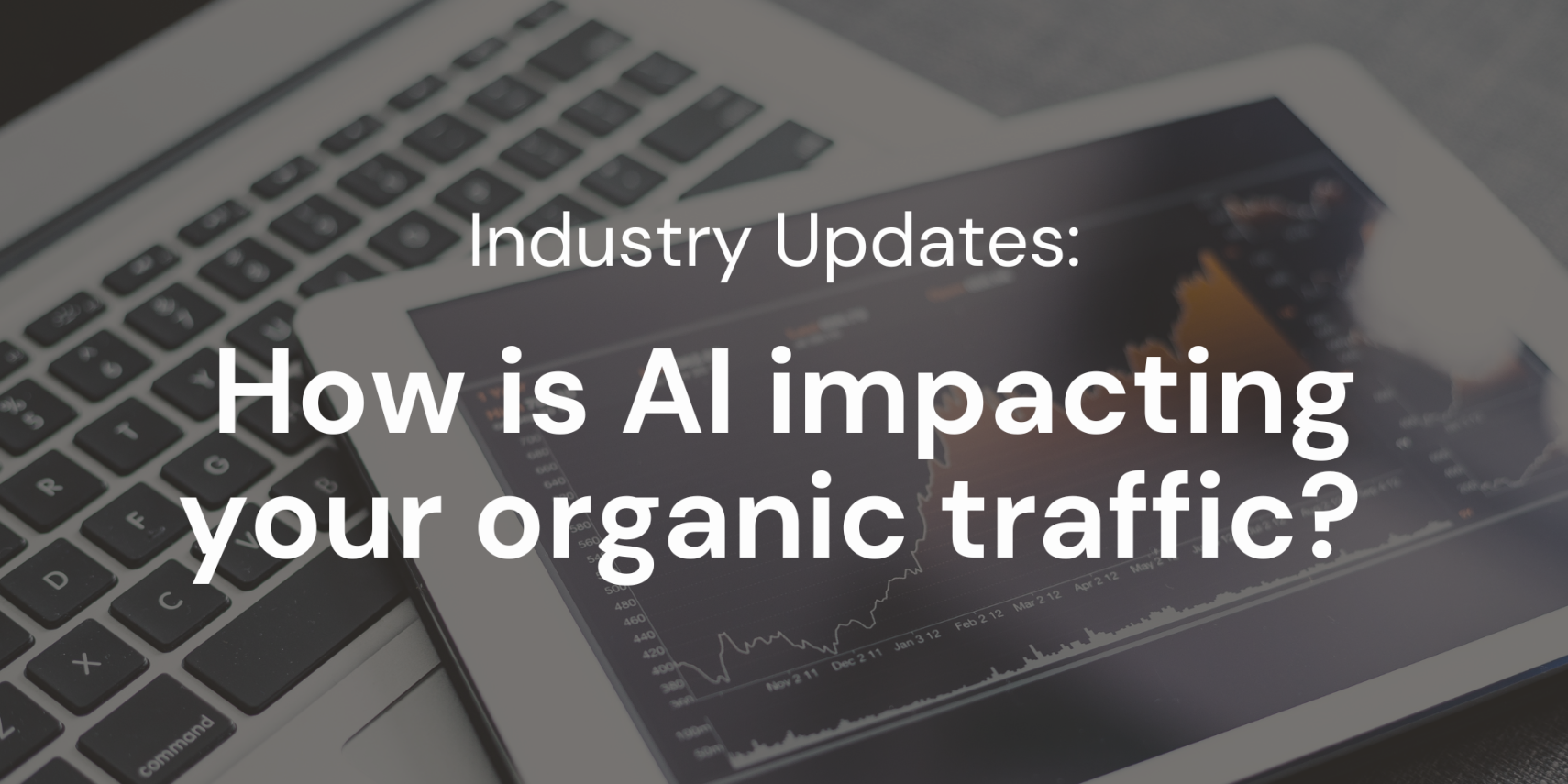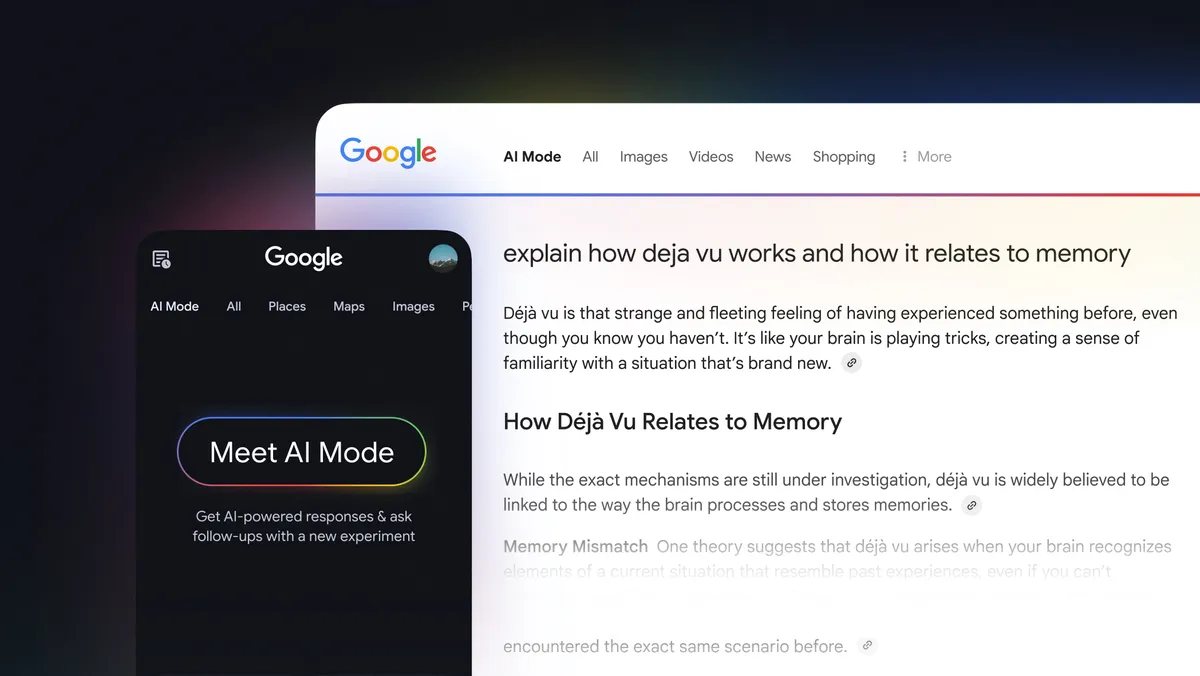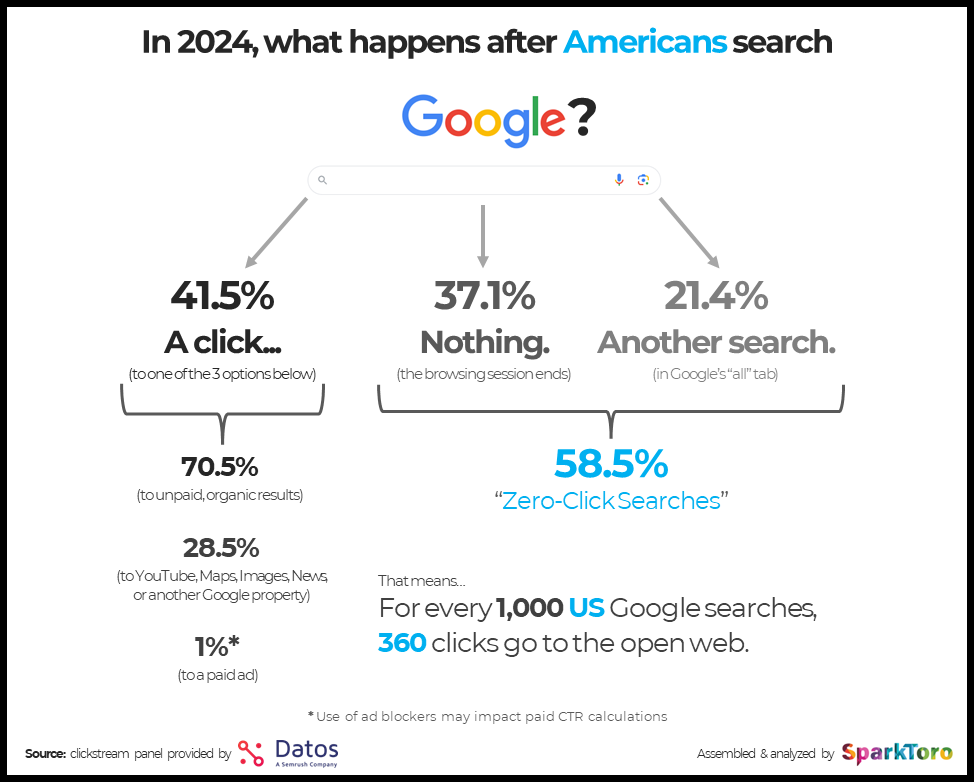Latest
Industry Updates: How is AI impacting your organic traffic?

February 2025 saw significant shifts across the SEO landscape, with search volatility at its highest since late last year. From Google’s latest Core Update to new AI-driven search features, brands and marketers are seeing major developments that could reshape search strategies in the months ahead.
Here’s a full rundown of what happened and what it means for you.
March 2025 Google Core Update
Throughout January and February, third-party SERP tracking tools picked up substantial search ranking volatility. Spikes were recorded on January 24th and 30th, followed by similar surges on February 7th, 12th, 20th, 26th and 27th. Many people speculated that algorithmic tweaks were at play – and they weren’t wrong.

In early March, Google officially announced a new core update, designed to improve the relevance and overall quality of search results. The update is still rolling out at the time of writing, so its full impact is yet to be seen.
According to Google’s statement, “This is a regular update designed to better surface relevant, satisfying content for searchers from all types of sites. We also continue our work to surface more content from creators through a series of improvements throughout this year. Some have already happened; additional ones will come later.”
What Does It Mean For You?
Core updates often bring noticeable volatility in search rankings. While the aim is to improve the relevance and quality of results – which could benefit your site or your clients’ sites – you might still experience ranking shifts or drops in organic traffic.
With Google doubling down on AI Overviews and further integrating AI across its platform, it’s more important than ever to focus on content that’s genuinely useful and authoritative. Prioritise clear, concise, user-first content that satisfies search intent and builds long-term visibility.
AI Mode Targets the SearchGPT Market
Another major reveal this month is Google’s ongoing tests of a new search feature: AI Mode. This tool is designed specifically for open-ended, exploratory queries – questions where users want deeper, follow-up information beyond a simple answer.
AI Mode’s structure mirrors OpenAI’s Search GPT product, which was launched in 2024. It delivers easy-to-digest breakdowns, summaries and links to further reading, creating an interactive, conversational search experience. With Google reporting a 12% rise in Q4 revenue (largely driven by AI advancements and Cloud services), it’s clear that the company is investing heavily in AI-driven features going forward.

What Does It Mean For You?
AI Mode is another sign that informational and exploratory queries will increasingly be handled by AI-powered summaries.
To stay visible, brands need to ensure their content is detailed, structured and optimised for these breakdown formats. It also means strengthening your presence beyond the first click – think about how to make your brand memorable even if users don’t immediately visit your site.
Chegg vs. Google
One of the most talked-about stories in February involved Chegg, an education technology platform, filing a lawsuit against Google. Chegg claims that Google’s AI Overviews have significantly undercut their traffic, acquisitions and revenue by providing answers directly in the search results – reducing the need for users to click through to Chegg’s website.
Financially, the effects have been stark. Chegg reported a $6.1 million net loss on $143.5 million in Q4 revenue, which is a 24% decline year over year. Stock value has plummeted and Chegg is now valued at under $200 million. The company has engaged Goldman Sachs to explore options like acquisition or going private. Despite these challenges, Chegg is also pursuing its own AI partnerships with firms such as Meta, Anthropic, Mistral and OpenAI.
Google has committed to defending the lawsuit, which accuses them of violating the USA’s Sherman Antitrust Act. The tech giant maintains that AI Overviews, which are now live in over 100 countries and serving more than 1 billion users, enhance the user experience by offering quick access to information.
What Does It Mean For You?
This lawsuit could set a precedent for how AI-generated content is handled by search engines. If Chegg prevails, it might force Google and others to implement stricter rules around sourcing and compensating content creators. We could see a ripple effect, with more companies challenging how their proprietary content is used. That, in turn, might lead to more equitable visibility and competition in the SERPs, giving brands that produce high-value content an edge.
The deadline for Google to respond to the lawsuit was extended in March to 28th April.
AI Overviews Are Slowly Driving Brand
When AI Overviews (AIO) first rolled out, one key concern dominated SEO conversations: how will this affect organic traffic? The Chegg lawsuit underlines the potential risks, but a new study offers fresh insights.
Seer Interactive analysed over 10,000 informational search queries and found that 58.5% of searches resulted in Zero-Click Searches. This suggests that more users are finding the answers they need without ever clicking through to a website.

However, the study also highlighted an interesting trend. Brand terms featured in AI Overviews experienced a 0.7% to 1% increase in CTR. Because branded queries tend to have a higher baseline CTR, being included in these overviews seems to enhance trust and improve the likelihood of clicks.
What Does It Mean For You?
While Zero-Click Searches can limit organic traffic, there’s a silver lining: branded terms currently perform better when featured in AI Overviews. By ensuring your brand and product names are included in authoritative, well-optimised content, you can still drive qualified, trust-driven traffic. The goal now is to balance informational content with brand visibility to maximise your chances of being highlighted.
SEO is changing rapidly, with AI playing a central role in how users interact with search results. Whether it’s adapting to Google’s latest Core Update, understanding the rollout of AI Mode or learning from cases like Chegg’s, staying informed is essential.
By focusing on user-first content and keeping brand visibility strong, you can turn these shifts into opportunities. Need expert guidance on how to adapt your strategy? Get in touch with Summit at hello@summitmedia.com.
Ready for change? Let's talk
Speak to Summit